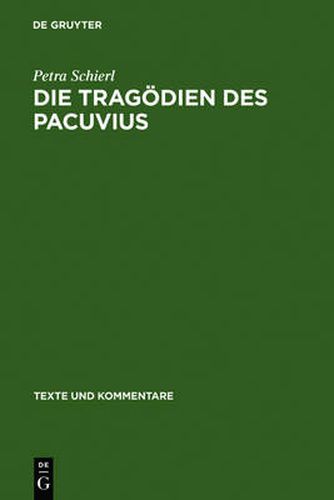Readings Newsletter
Become a Readings Member to make your shopping experience even easier.
Sign in or sign up for free!
You’re not far away from qualifying for FREE standard shipping within Australia
You’ve qualified for FREE standard shipping within Australia
The cart is loading…






Pacuvius is one of the most important Republican tragedians. The commentary compiles and explains the roughly 300 fragments of his work which have been preserved as quotations by ancient authors. It establishes a new basis for the philological, literary as well as cultural historical study of Pacuvius, now that D'Anna’s commentary edition (Rome 1967) has been superseded by recent research.
Petra Schierl has revised the text following the standard editions and arranged the fragments in a new sequence under the titles of the respective tragedies. The fragments, including the fragmenta incerta, are commented upon and for the first time translated into German. To ensure the transparency that is necessary when dealing with fragments, the commentary is used in particular to discuss different proposals for their interpretation. A detailed introduction provides an overview both of Pacuvius’ tragic output and the reception and transmission of his works. Indices facilitate the use of the commentary.
$9.00 standard shipping within Australia
FREE standard shipping within Australia for orders over $100.00
Express & International shipping calculated at checkout
Pacuvius is one of the most important Republican tragedians. The commentary compiles and explains the roughly 300 fragments of his work which have been preserved as quotations by ancient authors. It establishes a new basis for the philological, literary as well as cultural historical study of Pacuvius, now that D'Anna’s commentary edition (Rome 1967) has been superseded by recent research.
Petra Schierl has revised the text following the standard editions and arranged the fragments in a new sequence under the titles of the respective tragedies. The fragments, including the fragmenta incerta, are commented upon and for the first time translated into German. To ensure the transparency that is necessary when dealing with fragments, the commentary is used in particular to discuss different proposals for their interpretation. A detailed introduction provides an overview both of Pacuvius’ tragic output and the reception and transmission of his works. Indices facilitate the use of the commentary.